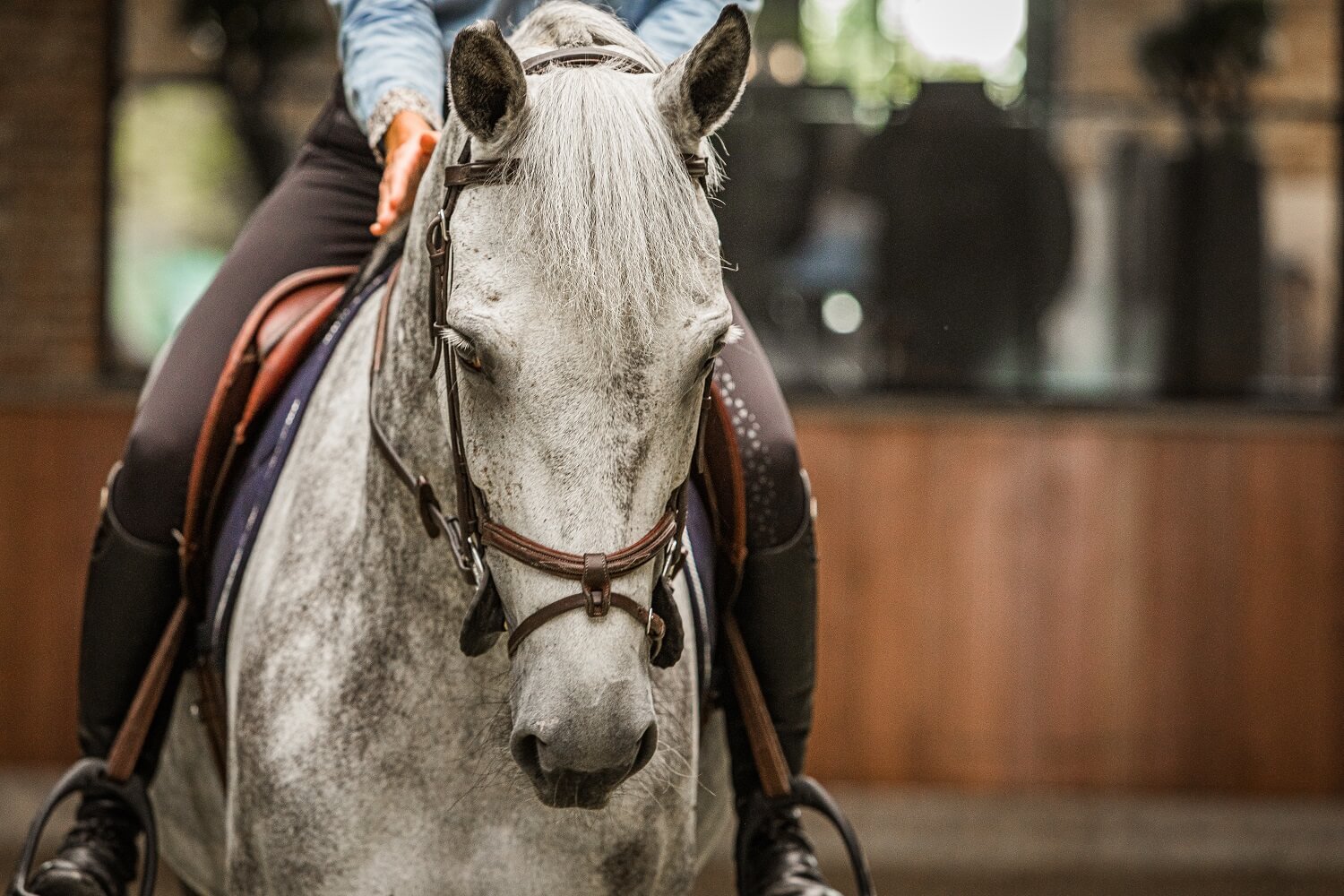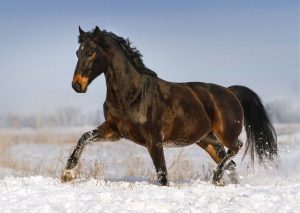The respiratory system is a large and important part of a horse's anatomy. To be precise, a horse's lung capacity is as much as fifty liters. Compare that to a human's seven liters and you can immediately understand why it is important to adequately support your horse's respiratory system. In this blog, you will receive information about the anatomy of the respiratory system in horses, how to recognize normal or abnormal breathing, and discover ways to support your horse's respiratory system.
The anatomy of the respiratory system in horses
How do horses breathe? The answer seems obvious, but horses don't breathe the same way humans do. In the image below, you can see exactly how your horse's respiratory system works.
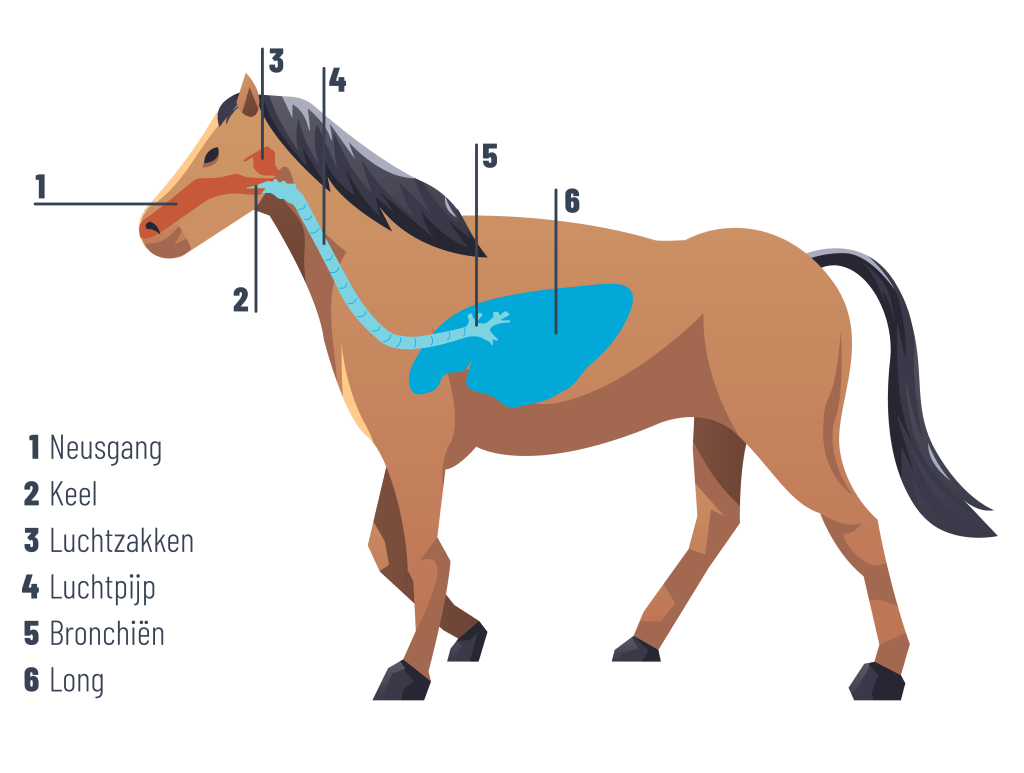
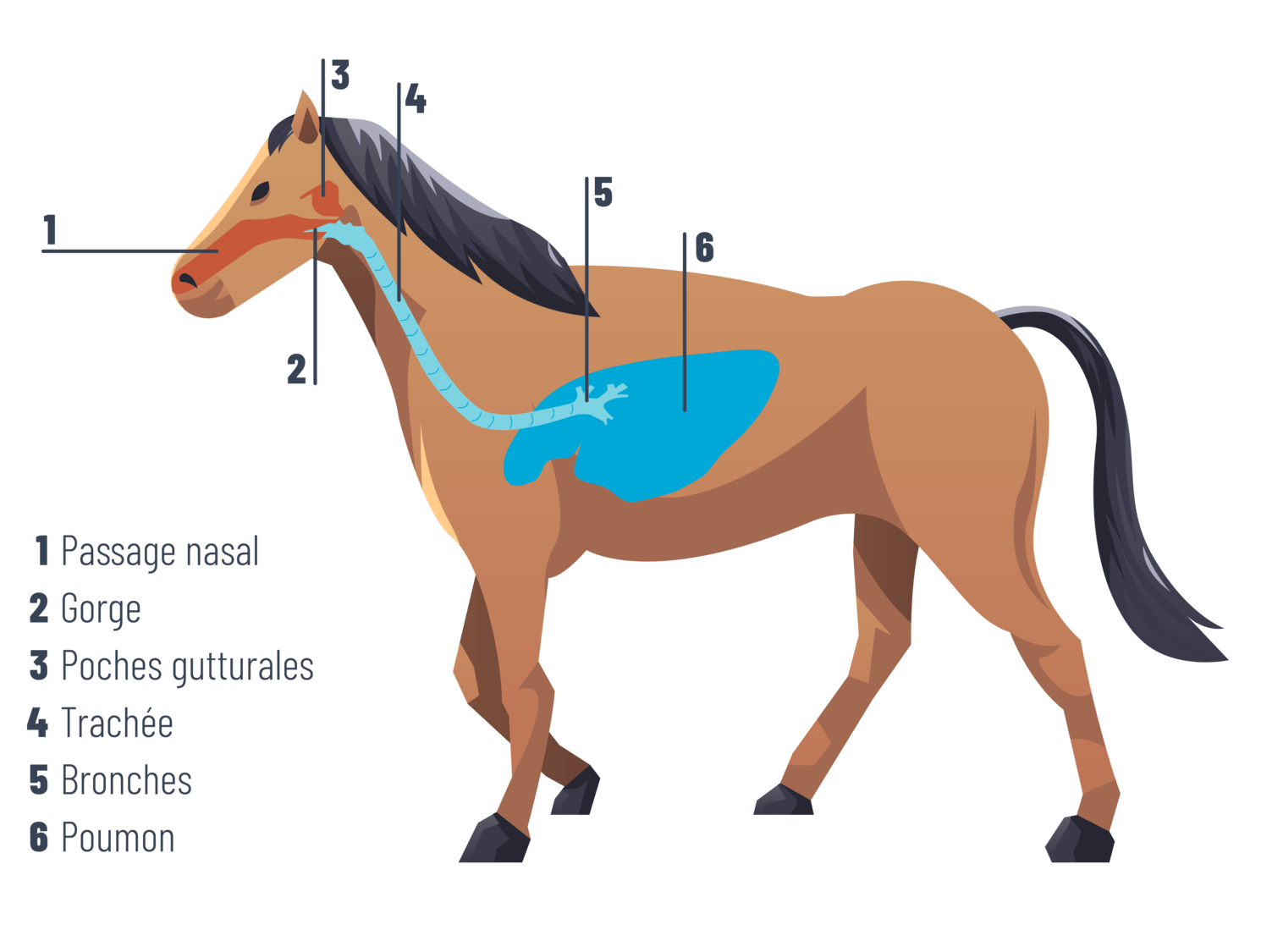


The airways of horses can be divided into two groups:
- The anterior airways (nasal passages, throat, air sacs and trachea)
- The deep airways (bronchioles, bronchioles and alveoli in the lungs)
A horse breathes oxygenated outside air through the nostrils. Through the nasal cavity, throat and trachea (anterior airways), this air enters the lungs. The air then passes through the large bronchi to the small bronchioles and bronchioles (deep airways). The latter are small hollow tubes held open by muscles that drain into the alveoli of the lungs. Here gas exchange takes place: oxygen enters the body and carbon dioxide leaves the body.
Because the lungs are filled with air, the lung tissue is naturally elastic so that exhalation can occur without any effort.
Finally, the horse's airways are equipped with cilia cells and mucus-producing glandular cells. Together, they ensure healthy and clean lungs. The mucus absorbs incoming dust or pathogens and the cilia work them back out.
How do you notice respiratory problems in your horse?
Unfortunately, respiratory problems are common in horses. We see this especially in sport horses because they come in contact with other horses more often and the immune system can lower due to prolonged transportation and stressful situations. For sport horses, it is therefore recommended to Immunotop administer during periods of reduced resistance.
The sooner you notice a respiratory problem, the easier the healing process will be. That's why it's important to contact your veterinarian right away when noticing the symptoms listed below:
- Cough
- Tightness
- Nasal discharge
- Reduced stamina
- Reduced performance
- Faster breathing
- Fever
- Swollen lymph nodes
Your veterinarian will probably perform a clinical examination first. Here the focus is on observing your horse, probing some structures (such as the throat and lymph nodes) and auscultation. This is a procedure in which your veterinarian can use a stethoscope to notice certain sounds in the body. Depending on the findings during the clinical examination, your veterinarian may or may not recommend further treatment or examination.
What can I expect after the clinical examination?
After performing the clinical examination, your veterinarian will already suspect a certain condition. To rule out other causes, it is sometimes necessary to perform further examinations. One of the first additional examinations your veterinarian will perform is an endoscopy.
In an endoscopy, the veterinarian looks through the nose at your horse's airways with a small camera and a light source. This way, the respiratory system with its various structures can be viewed in greater detail. Depending on the results of the endoscopy, an additional examination may be necessary. Of course, this is highly dependent on the horse's complications.
What can you do yourself to support your horse's respiratory system?
Fortunately, to support your horse with lung problems or even prevent them, you can already take several precautions:
- Allow your horse plenty of pasture to reduce dusty barn hours
- Moisten the hay to minimize the release of dust
- Ensure a clean barn to prevent an ammonia smell
- Provide good ventilation and avoid drafts
- Choose a less dusty stable floor such as flax and wood shavings
- Regularly spray the riding arena with water to reduce dust clouds
Although the above measures greatly reduce the risk of respiratory problems, in the case of coughing horses, horses with wheezing, or horses that are very sensitive to dust, it is recommended to support the respiratory tract in advance with Respitop.
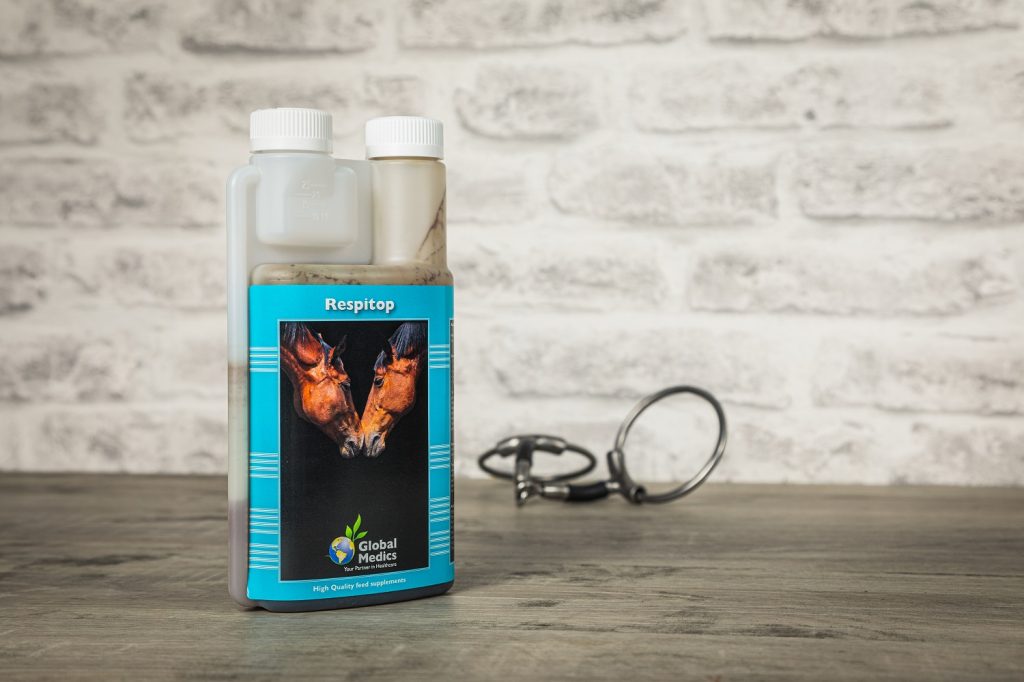
Respitop was specially developed with high-quality herbs to support a healthy and clean respiratory system. Glycerol and honey were also added because they offer a soothing effect on the throat. Finally, Respitop contains propolis which has a natural, antibacterial effect.
Do you need more information?
Not sure if your horse's respiratory system needs support? Or perhaps you still have questions after reading this blog? Then feel free to contact us. We at Global Medics are always ready to provide advice.
If your horse is breathing heavily, making a wheezing sound or coughing it is best to discuss this with your veterinarian right away. Many complications are easily cured in the early stages.

